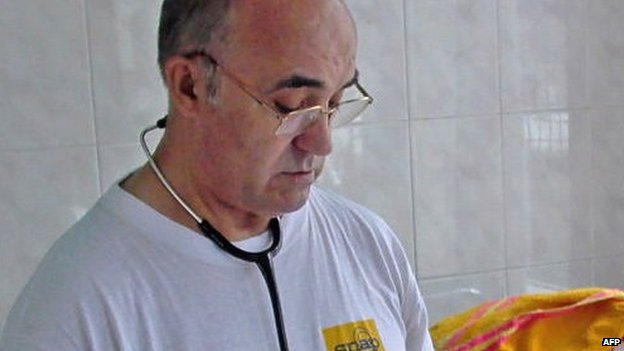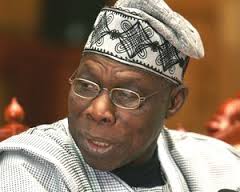Manuel Garcia Viejo, seen in a file photo, was the second Spanish priest to be repatriated from Africa with Ebola
Investigations are under way at a hospital in Madrid after a Spanish nurse became the first person known to have contracted the deadly Ebola virus outside west Africa.
The nurse had treated two Spanish missionaries who died of the disease after being flown home from the region.
Meanwhile, US President Barack Obama has announced plans to screen passengers flying to the United States.
Some 3,400 people have died in the outbreak – mostly in West Africa.
Barack Obama criticised foreign governments for not acting “as aggressively as they need to” against the outbreak.
“Countries that think that they can sit on the sidelines and just let the United States do it, that will result in a less effective response, a less speedy response, and that means that people die.
“And it also means that the potential spread of the disease beyond these areas in West Africa becomes more imminent,” Mr Obama said.
First case
The 40-year-old nurse was part of the Madrid team that treated Spanish priests Manuel Garcia Viejo and Miguel Pajares, who both died of the virus, Spanish officials say.The hospital Carlos III de Madrid where the priests were treated is reported to have had extreme protective measures in place including two sets of overalls, gloves and goggles.
The nurse is in a stable condition and has been moved from the Alcorcon hospital to a specialised unit at the Carlos III hospital.
The other members of the medical team are being monitored.
Manuel Garcia Viejo, 69, died on 25 September after catching Ebola in Sierra Leone.
Miguel Pajares, 75, died in August after contracting the virus in Liberia.
The nurse began to feel unwell on 30 September, but only sought medical advice on Sunday.
Critical but stable
The likelihood of an Ebola outbreak in the US was “extremely low”, President Obama said on Monday, but “we don’t have a lot of margin of error”.
Dr Tom Frieden, director of the Centers for Disease Control and Prevention, has ruled out banning flights to the US from countries suffering the outbreak, arguing the isolation would only worsen the outbreak within Africa and would deny those countries crucial aid.
Ebola spreads through contact with the bodily fluids of someone who has the virus and the only way to stop an outbreak is to isolate those who are infected.
There have been nearly 7,500 confirmed infections worldwide, with officials saying the figure is likely to be much higher in reality.
Guinea, Sierra Leone and Liberia have been hardest hit.
Thomas Duncan, the first person to be diagnosed with Ebola in the US, is being treated at a Dallas hospital in isolation. He caught the virus in his native Liberia.
Mr Duncan’s condition is critical but stable, doctors said on Monday.
He has been given Brincidofovir, a new experimental drug for treating Ebola which was developed in North Carolina. Symptoms include high fever, bleeding and central nervous system damage
Spread by body fluids, such as blood and saliva
Fatality rate can reach 90% – but current outbreak has mortality rate of about 70%
Incubation period is two to 21 days
There is no proven vaccine or cure
Supportive care such as rehydrating patients who have diarrhoea and vomiting can help recovery
Fruit bats, a delicacy for some West Africans, are considered to be virus’s natural host














